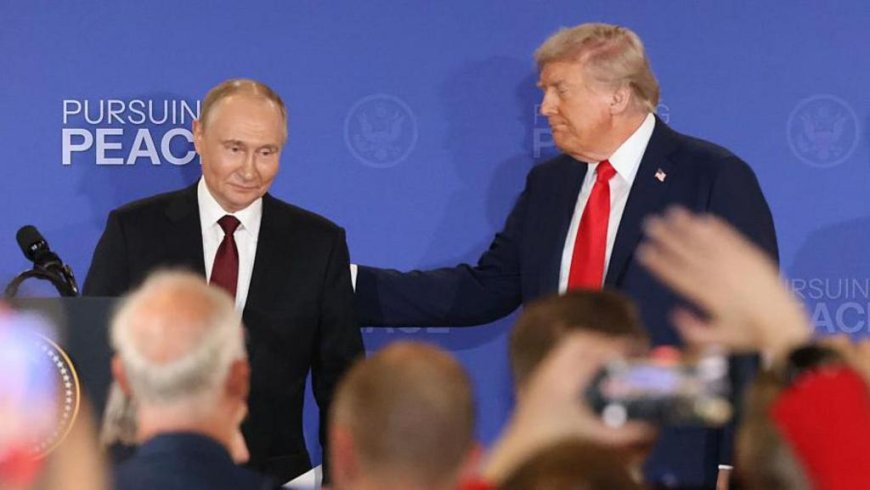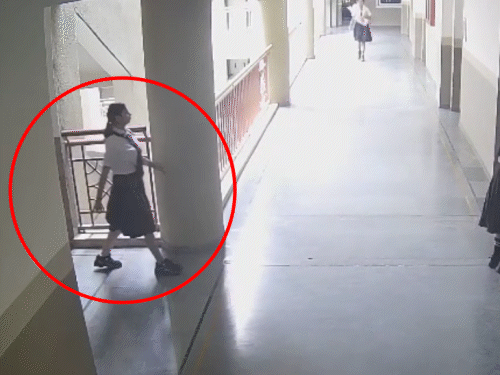Russia Sees Victory as Trump Echoes Putin’s Vision for Ending Ukraine War
At the Alaska summit on August 17, 2025, Trump embraced Putin’s approach to ending the Ukraine war. Russia hails it as a diplomatic victory while Europe voices concern.

The red-carpet reception for Russian President Vladimir Putin at the Alaska summit on Sunday, August 17, 2025, has sent ripples through global politics. For the Kremlin, the warm embrace from U.S. President Donald Trump was more than symbolic. Russian officials and media outlets hailed it as a turning point — evidence that Washington may be shifting closer to Moscow’s preferred framework for ending the war in Ukraine.
Trump’s Summit Gesture
In Anchorage, Trump greeted Putin with a handshake, extended ceremony, and private talks that lasted nearly three hours. Unlike previous summits dominated by tense exchanges, this meeting was framed by the White House as “constructive,” with Trump suggesting that Ukraine should “make a deal sooner rather than later.”
According to aides familiar with the discussions, Trump emphasized that prolonging the conflict only deepens suffering and costs, adding that “compromise is the realistic path forward.” While the president did not spell out specifics, his rhetoric closely mirrored Moscow’s long-standing demands: recognition of Russian control over occupied territories and reduced Western military support for Kyiv.
Kremlin’s Reaction
Russian state television quickly seized on Trump’s remarks, describing the summit as a “diplomatic breakthrough.” Officials in Moscow portrayed Trump’s openness to compromise as validation of Putin’s stance that the West must acknowledge “new realities” on the battlefield.
One Kremlin adviser was quoted by Russian media as saying, “For the first time, the American president speaks our language. This is victory without firing another shot.”
The symbolism of the red carpet in Alaska — a gesture not afforded to many foreign leaders — was widely interpreted in Russia as a signal of respect and a diplomatic opening that could weaken transatlantic unity.
Unease in Europe
The reaction in European capitals was starkly different. Leaders in Berlin, Paris, and Warsaw expressed concern that Trump’s approach risks fracturing NATO solidarity and undermining Ukraine’s leverage in negotiations.
European Union officials reiterated their support for Ukrainian sovereignty on Monday, August 18, warning against any settlement that concedes territory to Russia. “Peace cannot come at the price of legitimizing aggression,” said one EU foreign affairs representative.
Coverage in BBC News highlighted fears that a potential U.S. pivot could leave European nations isolated in backing Kyiv. Analysts note that if Washington reduces aid or pushes Ukraine toward concessions, pressure on EU states to maintain military and financial support alone would intensify.
Kyiv Holds Firm
Despite mounting pressure, Ukrainian President Volodymyr Zelenskiy reaffirmed his government’s position over the weekend. Speaking from Kyiv on Sunday, August 17, he insisted that Ukraine would not accept any deal requiring the recognition of Russian control over occupied regions.
“Ukraine wants peace, but not at the cost of surrender,” Zelenskiy said. “No handshake abroad can change the reality that Russia must leave our land.”
Ukrainian officials worry that Trump’s comments may embolden Moscow while weakening Kyiv’s bargaining position. Some advisers also fear that U.S. military aid could be scaled back if Trump pursues a rapid diplomatic settlement.
Strategic Implications
For Moscow, the Alaska summit reinforced a narrative that the United States may no longer be fully aligned with its European partners. Analysts argue this could mark the beginning of a broader Russian strategy: drive a wedge between Washington and NATO while consolidating battlefield gains.
Commentary from the New York Times noted that Trump’s stance represents a striking departure from decades of bipartisan U.S. foreign policy, where maintaining Western unity was seen as central to countering Russian influence.
The Road Ahead
Whether Trump’s words in Alaska translate into a formal U.S. policy shift remains uncertain. The White House has so far declined to confirm whether new diplomatic proposals are being drafted. Still, for Putin, the optics of the summit alone amounted to a strategic victory — projecting Russia not as an isolated aggressor, but as a negotiating equal.
As the war enters its fourth year since Russia’s invasion in February 2022, the stakes are enormous. For Ukraine, the challenge is to maintain Western support despite the shifting winds in Washington. For Europe, the concern is that transatlantic unity may be unraveling. And for Russia, the Alaska summit already represents progress toward its long-standing goal: reshaping the geopolitical order in its favor.
What's Your Reaction?
 Like
0
Like
0
 Dislike
0
Dislike
0
 Love
0
Love
0
 Funny
0
Funny
0
 Angry
0
Angry
0
 Sad
0
Sad
0
 Wow
0
Wow
0








































































